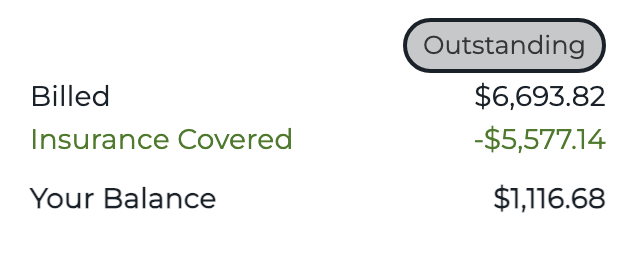@homegrown @jalefkowit @oliphant@oliphant.social ( i’ve also written a mastodon archive to static site generator, fossilphant https://github.com/swaldman/fossilphant )
@light it’s the wealth per se, because we can’t meaningfully be political equals with such dramatic divergences of wealth.
@BenRossTransit but leadership punishes the fuck out of anyone who primaries incumbents. there’s a very serious omerta there, which tilts toward squad candidates who have little to lose from leadership anyway. team players don’t primary, even though nothing would be better for the team.
@BenRossTransit right. tight margins make the worst of them kingmakers. that’s a huge problem.
@BenRossTransit i don’t think it’s about leadership. i think it’s about something like the median Democratic congressperson.
@jenzi they exist, and continue to grow.
@jenzi (maybe it’s the rest of our society that is now unsustainable.)
@darwinwoodka i’m not sure “we” are institutionally constituted in a way that could ever render it self-interested for our representatives to do the right thing. it can’t in that sense come from us. sometimes people in positions of authority have to make use of their own minds and consciences. otherwise, Musk will happily pay to keep them comfortable doing his version of the right thing, while keeping the public braying for the blood of scapegoats.
@BenRossTransit i don’t have individuals in mind. what i want to know is if Democrats gain control of government, is there sufficient consensus they would act seriously to address the near death (if not actual death) experience any semblance of meaningful democracy is now enduring, or will they equivocate and tolerate the conditions that have brought us here and undoubtedly will again?
@louis it’s a moment where lying well and easily proves very adaptive…
so, are centrist Democrats for or against at this point some combination of wealth tax / progressive income tax that would render accumulations of wealth at Musk, Bezos, or even Gates levels unachievable and unsustainable?
“We could version UIs, but we don’t. We change UIs constantly, remorselessly. Every reason for providing stable interfaces applies just as well for human beings as they do for robots – but somehow we only respect the robots.” @phillmv http://okayfail.com/garden/uis-should-be-versioned-just-like-we-version-apis.html
@BenRossTransit i never understand drug pricing. sometimes it is absurdly cheap for me (with my ACA marketplace insurance). sometimes not. like everything in healthcare a random reinforcement regime, you never know when you’re gonna get the electric shock.
since we have now all read ChatGPT responses and seen Midjourney pics, all of our creative work is now derivative of AI. soon we’ll be required to pay licensing fees.
Basically, it feels like much of how US health insurance works is like Las Vegas hotel/casino comps. The hotel rooms, the hotel restaurant dramatically inflate undiscounted top-line prices, so that when high rollers are comped, the value of their benefit relative to the entirely fictional prices seems gratifyingly large. Doesn't seem like a great way to run a fifth of the economy.
So, this is for an emergency room visit. I'm far from having met my deductible. The phrase "insurer covered" suggests my insurance company is paying something, but I think in fact they've just negotiated a less ridiculous price, and the only actual cash flow is coming from me.
Am I wrong? If I am not, isn't this presentation misleading? Is it legal? Should it be?
@dangillmor @Callalily it’s the Pacific version of Atlantis.
i can’t believe that they’re hypocrites!
“Donald Trump, alleged leader of…populist Republicans, scuttled a spending bill primarily to shield the richest man in the world’s investments in China and the profits of UnitedHealth Group, owners of the second-largest pharmacy benefit manager.” @ddayen https://prospect.org/politics/2024-12-20-government-shutting-down-elon-musk-factories-china/
@akkartik it looks like they are voting on some kind of stopgap now. if it succeeds, no shutdown, if not almost certainly a shutdown. but it looks like lots of democrats are voting for it, i think it's likely to pass. i'm curious what concessions were made by whom.
@akkartik people i'm reading are pretty despondent, view it as a cave by Democrats. https://bsky.app/profile/ddayen.bsky.social/post/3ldrf2blajc24
@realcaseyrollins i guess i think horse trading — i'll assent to your priority if you assent to mine — is an important part of the legislative process. it'd save money if only individual line items a majority supports git funded, but i don't think it'd lead to better government over all. your community might really need some Federal support of a health clinic, and mine might need a bridge repaired. funding both might be better overall, from a national perspective, than neither.
